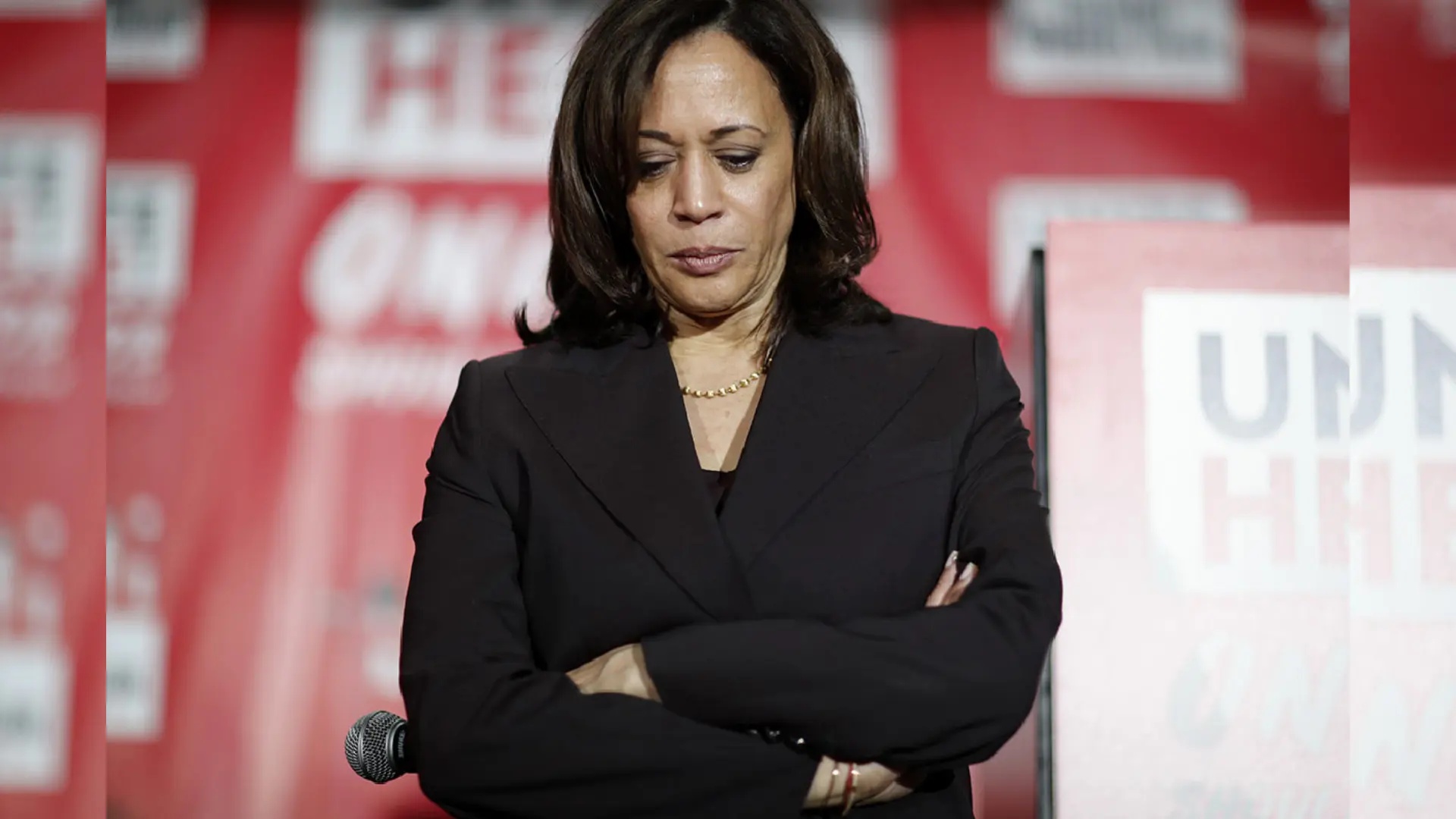Gambiaj.com – (Washington, DC) – In a dramatic election loss, Kamala Harris’s campaign efforts to rally Democratic support fell short, as her strategy to highlight former President Donald Trump’s polarizing rhetoric failed to resonate with voters. Despite last-minute attempts to galvanize support by showcasing Trump’s incendiary statements on jumbotrons at her rallies, Wednesday’s results were disastrous for Harris and the Democratic Party, which suffered significant losses nationwide.
Harris took over from President Joe Biden in a summer campaign that had already begun to flounder under Biden’s declining popularity and struggles to effectively communicate a unifying message. Democrats saw Harris as a potential “turn-the-page” candidate, yet her close alignment with Biden ultimately hindered her ability to create a distinct vision for her presidency.
Though she quickly mobilized the Democratic base, attracted large donations, and gained traction on social media, her inability to distance herself from Biden on key issues like the economy undermined her campaign’s message.
Within her team, frustrations grew over Harris’s decision to retain strong ties to Biden’s record, even as some aides suggested that breaking away could have offered a fresh approach to appeal to undecided voters. However, her steadfast loyalty left her vulnerable to criticisms that her administration would simply extend Biden’s unpopular policies.
“We ran the best campaign we could, considering Joe Biden was president,” lamented a Harris aide, attributing the Democratic Party’s loss to lingering dissatisfaction with Biden.
Another aide remarked that Biden should have exited the political stage sooner, allowing for a primary season that could have reenergized the party with fresh candidates and competition.
The discontent wasn’t just internal. Prominent Democrats, including Rep. Brendan Boyle of Philadelphia, called for a critical review of the campaign’s failures, pointing to Wednesday’s defeat as the biggest Republican victory since Reagan’s landslide in 1984. “This is a solid Republican victory,” Boyle commented, urging fellow Democrats not to sugarcoat the challenges they now face.
Harris’s campaign grappled with operational issues, particularly in critical battleground states. Just three weeks before Election Day, Jewish Democratic leaders in Pennsylvania expressed frustrations over Harris’s lackluster surrogate outreach, which hindered voter persuasion efforts.
Similar concerns were raised by Black and Latino Democrats in Philadelphia, who met with Harris’s team in the campaign’s final weeks, citing insufficient local engagement and poor voter outreach.
In Pennsylvania, a pivotal swing state, the Harris campaign overestimated voter turnout in suburban counties, leading to disappointing results. Critics likened the missteps to those of Hillary Clinton’s 2016 campaign, with one strategist comparing it to the flawed data strategy that hampered Clinton’s path to victory.
Adding to the campaign’s woes, Trump’s messaging consistently overshadowed Harris’s, portraying her as aligned with liberal policies that critics argued were out of step with middle-class voters. Trump’s ad campaigns exploited her previous support for taxpayer-funded gender transition services for detained immigrants and federal prisoners, a controversial stance that Harris struggled to address publicly.
Despite efforts from Harris’s allies, such as the Future Forward PAC’s substantial investment in battleground ads, the intended impact fell short as Trump’s relentless media presence proved more influential. A source close to Harris’s team admitted that focusing more on her policy priorities, specifically those addressing Black and Hispanic communities, might have made a greater impact.
Ultimately, Harris’s calculated decision to keep Biden at her side, despite his own offer to let her carve an independent path, may have been her campaign’s undoing. Her reluctance to provide extensive clarifications on key policy shifts, including issues like hydraulic fracturing in Pennsylvania, left voters uncertain about how a Harris administration might differ from her predecessor’s.
Looking forward, Harris’s team and the Democratic Party face a stark reality: they must reckon with the missteps that led to a resounding defeat, with party insiders calling for a thorough re-evaluation of strategies if they hope to win back voters in the next election cycle.










